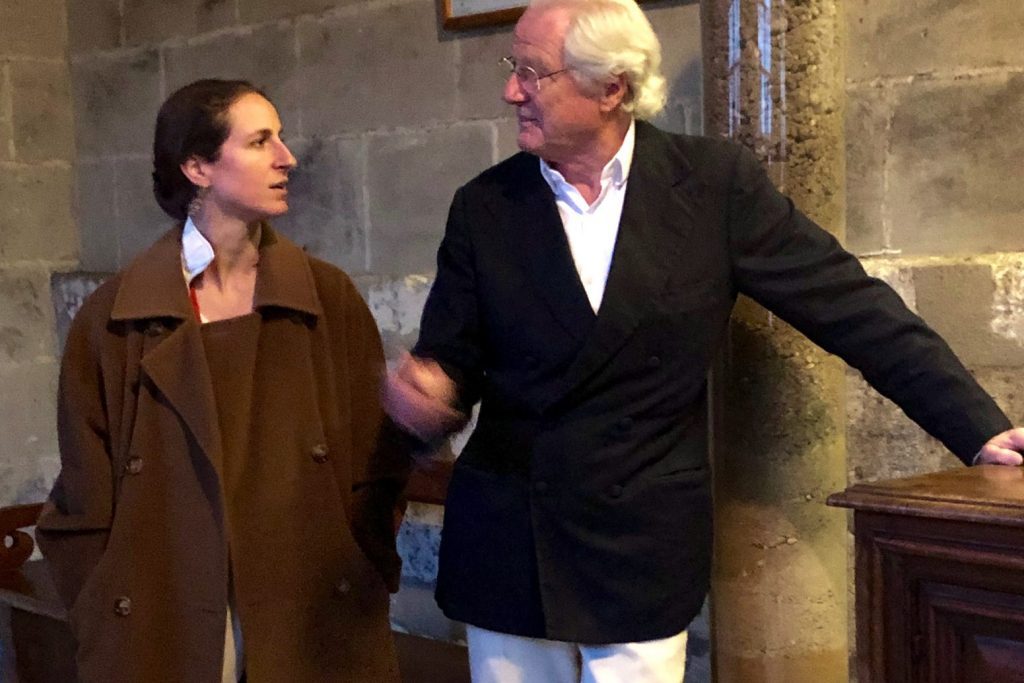Skift Take
Ultra-wealthy travelers are growing in number, and many are willing to pay for expertise in fulfilling their champagne wishes and caviar dreams. However, serving these clients, especially the newly rich, can put advisors to the test.
The growing ranks of newly minted billionaires and others of extreme wealth is testing the ingenuity of travel advisors and turning the traditional idea of deluxe travel on its head.
For Michael Albanese, co-founder of Los Angeles-based Element Lifestyle, serving the requests of ultra-affluent clients has meant arranging for a private magic show with Penn & Teller in Las Vegas for just eight people and delivering penguins to a hotel room for a birthday surprise.
Catherine Heald, CEO of Remote Lands, a New York-based agency specializing in high-end travel to Asia, has arranged for clients to trek to the Everest Base Camp with Tashi Tenzing, grandson of Sherpa Tenzing who made the historic first climb to the summit with Edmund Hillary in 1952. She also had the clients transported by helicopter to Mustang to spend a night with the Nepalese royal family before returning to Kathmandu.
Who’s Who
Who are these newly affluent clients, and how do their demands differ from their counterparts with fortunes that have older origins? Travel advisors who focus on the highest earners say the newcomers are usually younger and more flamboyant in their preferences.
“Some old-money European clients have been raised in an environment where one must not flaunt one’s wealth, whereas new American money is often happy to post their extravagant travel on Facebook ” Heald said. “Bragging rights are not important to old money, but new money is often obsessed with dining at the ‘right’ restaurants such as Jiro and Ultraviolet just for that reason.”
George Morgan-Grenville, CEO of UK-based Red Savannah, said his clients with newly made fortunes, especially in tech, tend to be inexperienced with travel, especially to exotic destinations.
“They’ve worked hard and been very focused, so there’s been less time to travel the world,” he said. “They may be less sophisticated and have less knowledge of the world. Another tendency is that newer money wants things very organized for every minute of the day. There’s a greater need for instant gratification and seeing multiple things at a rapid pace.”
Albanese said that “new money, especially tech, has an almost arrested development and concept of travel and experience,” but added that these clients can be especially rewarding to work with.
“The older and more well-traveled client is in a way more challenging to surprise and delight as they have seen it all,” he said. “The younger, less experienced client is more malleable and fun to serve because there is a lot of the world they have not yet seen.”
Exclusive Experiences
While “authentic” experiences have become increasingly popular with many travelers, pleasing ultra-wealthy travelers can mean turning the volume up a few notches.
“It’s very important to give them an exclusive experience that lets them get under the skin of a place,” said Morgan-Grenville, adding that this can mean anything from access to the Sistine Chapel before it’s open to the public to finding a little-known museum not listed on TripAdvisor or in guidebooks.
Helping clients “get under the skin” of a place also means giving clients insight into the current political or cultural scene, he added.
“A lot of travel focuses on 2,000 years ago, but our clients also want to know about contemporary society,” he said. “Some of our connections on the ground are with journalists who can share insight on what’s going on. In Egypt this could mean going to a backstreet café to talk with a journalist who covered the uprisings. Clients can feel they understand not only Cleopatra, but what’s happening now.”
Forming relationships with suppliers and others who can facilitate exclusive experiences is essential for serving top-level clients, according to Heald.
“Knowing the right people in each place who can unlock the keys in each place is paramount,” she said. “Traveling frequently around Asia to form these bonds is a big part of my work.”
Family Time
Multigenerational travel is especially popular among the ultra-wealthy, according to Morgan-Grenville.
“We’re seeing more people take six-month sabbaticals with their whole families, children included,” he said. “They will take a nanny and tutor along with them. The idea is to let their kids see the world before they have serious demands with school and exams.”
Often these kinds of extended family trips will have a serious side, involving opportunities for volunteer work in various destinations, Morgan-Grenville noted.
“They want their kids to see that not everyone has it so good and to give them a sense of proportion and balance,” he said. “It can be one of the most challenging aspects to arrange. For example, in Africa, the NGOs don’t always want volunteers for only a few days, so you have to find the ones who do.”
Virtuoso, a travel agency consortium specializing in luxury travel, has found that the growing ranks of ultra-rich clients is driving a trend for multi-generational family trips and villa rentals, according to Cheryl Cheney Bunker, vice president of global member partnerships.
She also noted that multigenerational travel is the top trend for 2019, according to the latest Virtuoso Luxe Report.
“As one example, we’ve seen demand for villas reach new heights with a 40 percent year-over-year growth in bookings,” Cheney Bunker said, adding that villas are not only suited for families, but also offer the “privacy and exclusivity” ultra-rich clients prefer.
To help members serve the burgeoning top end of the market, Virtuoso recently launched Ultraluxe Community, which offers specialized training and dedicated marketing assistance, including a catalog highlighting rare travel experiences. Advisors must qualify for membership with annual sales of $1 million and a minimum of two of Virtuoso’s highest-spending clients.
Value Still Counts
While the ultra-rich may be willing to spring for extraordinary service and experiences, advisors say that doesn’t necessarily mean free reign on spending.
“We don’t assume that just because you’re a billionaire we have carte blanche with your credit card,” said Albanese. “People still want value and they have their quirks. One client spent $25,000 on a suite but chose Uber over a private car service because he thought that was wasteful. Another insisted that she get free breakfast included in the room rate.”
While it can take a tremendous amount of detail work to serve an ultra-rich client, Albanese said his clients are willing to pay for what’s involved. Element Lifestyle charges most clients an annual $36,000 membership fee, which covers nearly all of the travel services they provide, excluding special events such as the Penn & Teller show.
Heald noted that while her clients are accustomed to top-level service and accommodations, they don’t mind roughing it in order to enjoy a “priceless” experience.
“That could mean sleeping in a Buddhist temple in Korea and getting up at 4:30 a.m. to pray with the monks or staying with a Mongolian nomad family in a far-flung area of the Gobi Desert where no camps exist,” she said.
The Daily Newsletter
Our daily coverage of the global travel industry. Written by editors and analysts from across Skift’s brands.
Have a confidential tip for Skift? Get in touch
Tags: luxury, travel advisor innovation report, travel agents, Virtuoso
Photo credit: The very wealthy are seeking VIP tours of everything from the Sistine Chapel to invitation-only wine cellars. Pictured is Saskia de Rothschild, chairwoman of Domaines Barons de Rothschild (Lafite), and her father, Baron Eric de Rothschild, in the wine cellar at Le Bernardin Privé in New York. Elin McCoy / Bloomberg

